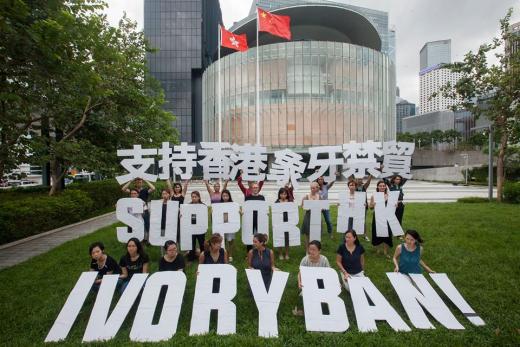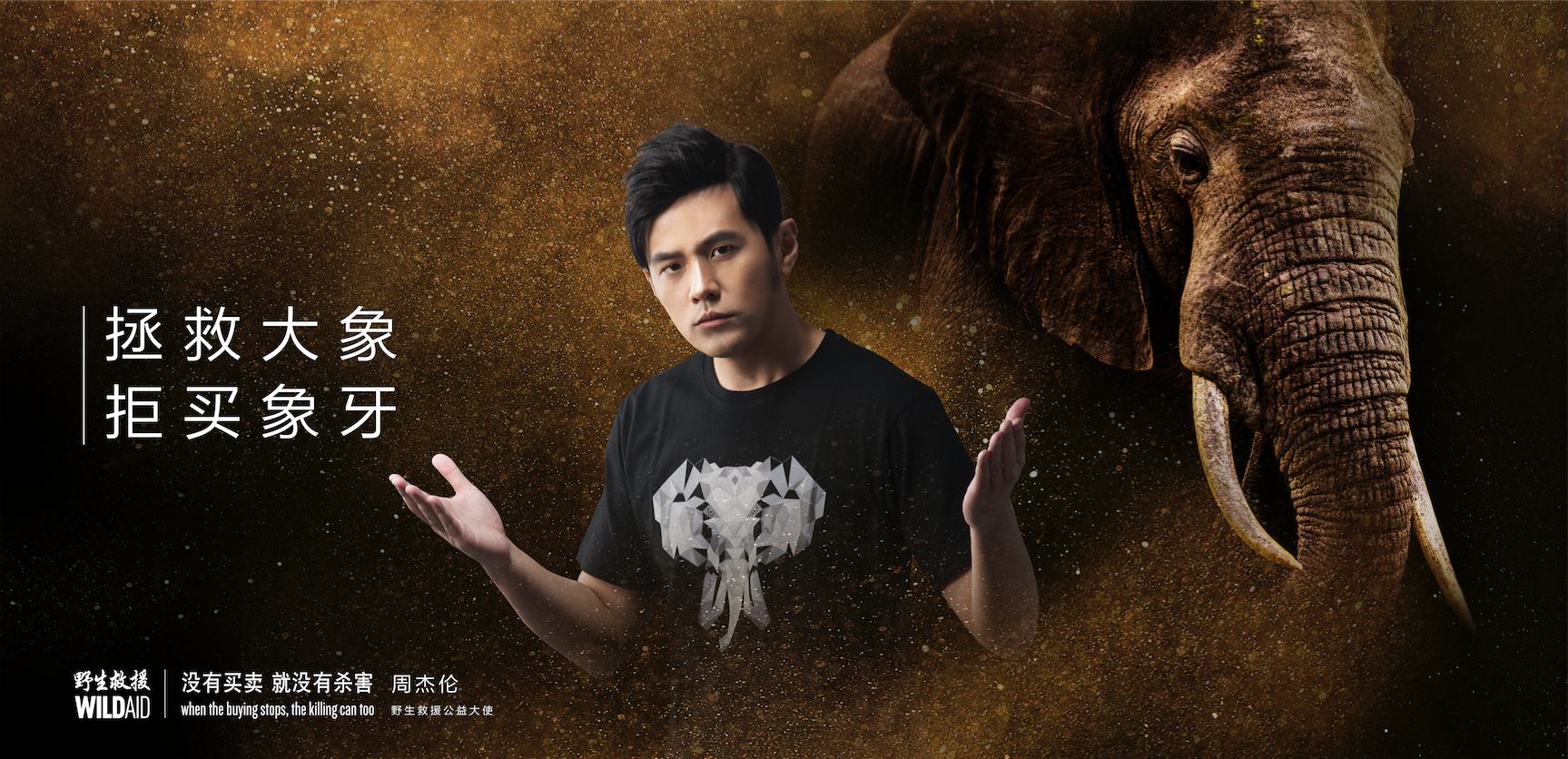
After more than 150 years, the legal ivory trade in Hong Kong is coming to an end. The Legislative Council passed an amendment in 2018 to phase out the local ivory trade and the final phase comes into effect on December 31st. All ivory possession permits will expire except for antique ivory and mammoth ivory. Permit holders can still legally keep their ivory for non-commercial use.
“This ban on the ivory trade is so important for protecting elephants. We remain grateful to the legislators and citizens for supporting this law. Along with the new wildlife provisions in the Organized and Serious Crime Ordinance, Hong Kong is leading by example on shutting down the wildlife trade,” said John Baker, WildAid Chief Program Officer.
WildAid has been advocating for a complete ban for many years and we worked closely with partners and legislators on this ivory law. Our team in Hong Kong has been tracking 100 ivory shops, comparing this past year to 2014-15. We found that 80% of shops that had been selling ivory were already closed or changed to another business (i.e. jewelry). Unfortunately, we also found that many remaining traders said they will change to sell mammoth tusks after the ban. Traders are also looking to the government for solutions to their stockpiles, specifically compensation for their remaining inventory.
Data from the Hong Kong government’s Agriculture, Fisheries and Conservation Department shows that the local trade still has approximately 47 tons on hand. This is down from the 111 tons registered with the government in 2014.
The Hong Kong public has overwhelmingly supported the ivory ban and ending the ivory trade. According to our 2015 survey, 76% of the Hong Kong public supported the ivory ban and about 90% said they never bought ivory nor did they know anyone who bought ivory in the previous 3 years.
As recommended all along, WildAid strongly urges the Hong Kong government not to offer any compensation to the ivory traders for their remaining ivory inventory.
For the traders who will now sell mammoth ivory, which is currently still legal, we urge the government to strictly check and control this trade to ensure that they do not mix goods with any remaining elephant ivory. They should develop a simple mechanism for identifying mammoth ivory and conduct regular inspections; otherwise, the ban is useless.
The Hong Kong government should destroy its stockpile of seized illegal elephant ivory, and ultimately ban the antique ivory and mammoth ivory trade to make Hong Kong truly ivory-free.


